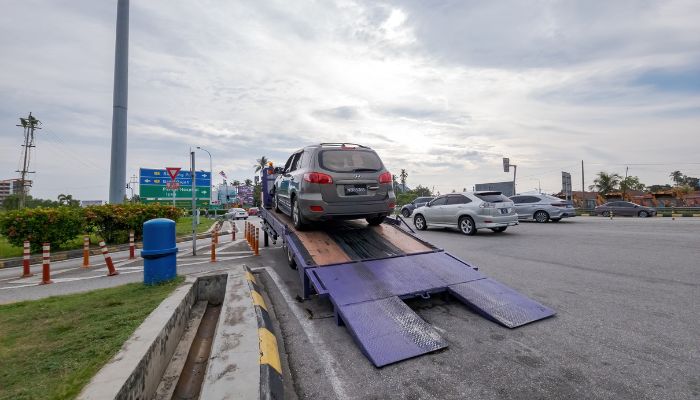As a landlord, getting the right tenant is not easy. This can be more tricky with commercial properties as these are used for business and rely on the business succeeding. While you always hope for the best, sometimes there are situations where you need to consider recovering your rent arrears by Commercial Rent Arrears Recovery (CRAR). Download our free factsheet now to learn how to recover your rent arrears.
You can use this free factsheet to negotiate with your tenant if they want to end the lease, to find out how you landlord can end the lease if your tenant falls behind with your rent; and what you can do to get back your unpaid rent. Simply fill the form below to download instantly!
[hubspot portal=”20199261″ id=”b18b2035-bb42-4ebd-829e-86f389771ae8″ type=”form”]Where can CRAR (Commercial Rent Arrears Recovery) be used?
CRAR is a statutory process available in England and Wales which provides a landlord with an additional way to recover rent arrears by taking control of a tenant’s goods and selling them to recover the money due.
The actual idea behind recovering rent arrears in this way is not new – CRAR replaces and modernises an old and complex common law right known as the law of distress.
So when can CRAR be used?
Landlords can use the CRAR process if:
- they authorise and use a certificated enforcement agent, on their behalf, who follows a statutory procedure set out in Part 3 of the Tribunals, Courts and Enforcement Act 2007
- they have a written lease (not a licence) with a tenant which has not yet come to an end irrespective of whether that lease includes the right to use CRAR
- they are landlords of “wholly” commercial property. It can not be used to recover rent from a tenant of “mixed use” premises (i.e. when any part of the premises is authorised for use as the tenant’s home/residential premises)
- the landlord is recovering a minimum of 7 day’s principal rent for “possession and use”, including any VAT and interest due on it. CRAR can not be used to recover any other money due such as for service charges or insurance premiums. If the rent is “all-inclusive” (i.e. covers service charges etc) then the landlord will have to “reasonably” apportion the rent and can only recover that amount under CRAR.
- The rent can be calculated “with certainty”. This is because some types of rent (for example linked to turnover) can be difficult to calculate
- the amount of rent to be recovered includes any deductions or set-off that the tenant would be able to make
- no exempt goods are recovered
What goods can be seized to cover outstanding rent?
If you are owed over 7 days of rent from a commercial tenant, you may be eligible to recover their goods to the sum of the owed money. The CRAR process can only be used to recover rent from a commercial property and there must be a written lease to act as evidence.
What goods?
Only goods belonging to the tenant can be seized in order to repay the rent arrears, which can include co-owned property but not goods belonging to a third party altogether. Property directly linked to trading in the business may not be recovered up to a value of £1,350, nor goods that are in use when the enforcement officer enters the commercial premises. Essential items cannot be repossessed.
How are they repossessed?
An enforcement officer can enter the premises through any open entrance, although cannot prize open a window or door if not already open. Following entry into the commercial property, the enforcement officer can repossess goods in a variety of ways; they could secure them on the premises itself, by locking them away to avoid removal before selling the items can occur, or can remove them from the premises immediately and secure them elsewhere.
Controlled Goods Agreement
The tenant may wish to enter into a ‘Controlled Goods Agreement’ which is an inventory of items that can be sold in order to cover the rent arrears. After the agreement, the tenant has the option to repay the rent in an official payment plan rather than through asset recovery.
Seven days’ notice
Once the goods have been sized or are under control of the enforcement officer, the assets must be valued within seven days and then sold or disposed of in order to acquire the best possible price for them. When storing the items prior to them being sold, the goods must be stored safely and securely, to keep them in a suitable condition for re-sale.
What happens to goods once they are seized?
If you are owed money from a debtor that cannot repay the money owed, seizing goods is often the next step in the process. Upon issue of a Writ of Control from the Court, certificated bailiffs can enter the debtor’s home. From there, the debtor and enforcement officer can either decide on a settlement plan whereby the money is paid in installments, or the enforcement agent can secure or take their goods to repay the debt.
Secured or taken goods
Goods can be secured on a debtor’s property in order to ensure no selling or removing of the goods in the meantime, to then be collected later. Taking control of their goods will typically involve an inventory where their financial worth is recorded and then locked away in a room or cupboard that the debtor cannot access. If the goods are removed from the property immediately, they are secured off site.
Seized goods
Once seized and taken away from the property, these goods will typically be sold at a local auction. The money that accumulates from the auction will go to repaying the debt owed and the enforcement officer fees. Generally, the money will go to the enforcement agency first and then any remaining will go towards repaying the debt, which is named the Application of Proceeds.
Raised money
In the event that the money raised is not enough to cover the enforcement officer fees and money owed, the debtor will still have to pay the outstanding debt. The seized goods process can only be repeated and more goods collected if the debtor has bought more items in the meantime or items were previously in use on the first visit to the property.
If you are owed rent arrears from a commercial tenant and would like more information on the commercial rent arrears recovery procedure, please get in touch with the team at Able Investigations. Our highly experienced enforcement officers are happy to assist, so call today on 0345 366 0000 or email us here.



